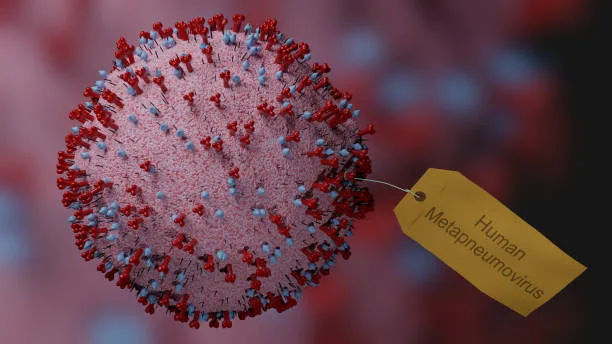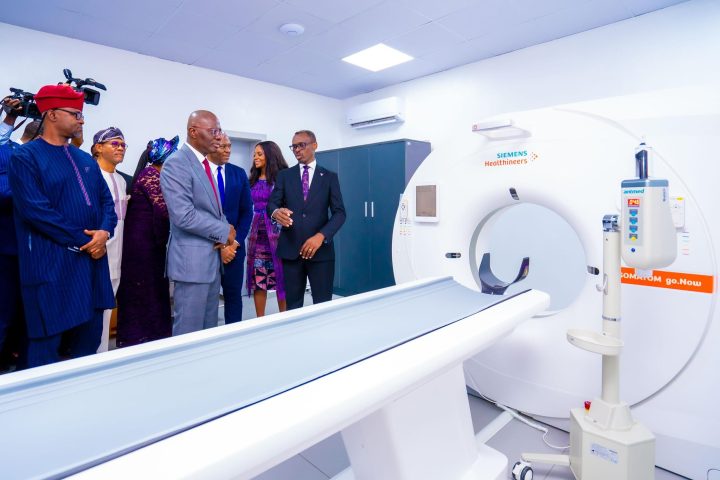Do you have a stubborn cough, a runny nose, or a sore throat that has refused to go despite using a series of medications? Then you might just be infected with the human metapneumovirus (HMPV).
Wait before you get scared. First of all, know that it’s not a death sentence and you might probably just be suffering from a case of acute common cold.
Join our WhatsApp ChannelBut whatever the case may be, don’t miss any part of this post to find out all you need to know about HMPV, its signs, prevention, and treatment to keep you and your loved ones protected.
What is HMPV?

As earlier mentioned, HMPV is short for Human Metapneumovirus. That’s a big name! But what is the virus all about?
HMPV is a virus that causes respiratory infections, much like the common cold or flu. It can affect people of all ages but is especially common in:
- Children younger than the age of five
- Older adults who are 65 years old or older
- Those who have a weakened immune system (from conditions like HIV, cancer or autoimmune disorders, or from medications that suppress your immune system) and
- People with asthma or chronic obstructive pulmonary disease (COPD).
When someone gets infected with HMPV, they might have symptoms such as a runny nose, cough, fever, or breathing problems. In most cases, it’s mild and goes away on its own, but sometimes it can lead to more serious issues like pneumonia.
Remember how the COVID-19 pandemic thrived during cold weather conditions and there was a great emphasis on hand washing?
Well, just like COVID-19, HMPV is one of those viruses that float around during the cold season and it causes sniffles and coughs, which leaves others around you infected if you cough into your hands and maintain close physical contact with them.
If you stopped washing your hands frequently after COVID-19, then this is your cue to make regular handwashing a habit because there are other viruses that fly around, including HMPV.
But then HMPV can be tricky, with the symptoms being all too similar to the common cold so how do you know if you’re infected with the virus?
Let’s learn more about the signs of this virus, how to prevent it, and how to treat it. But first, what causes HMPV?
What Causes HMPV and How Is It Spread?
HMPV is caused by a small germ that uses your cells to make more copies of itself. It’s part of the same group of viruses that cause RSV (respiratory syncytial virus), measles, and mumps.
Once the virus is contracted, it spreads through:
- Direct contact (such as shaking hands, hugging or kissing) with someone who has the virus, or
- From touching things contaminated with the virus, such as phones, door handles, etc.
Signs of HMPV
The signs of human metapneumovirus can vary from mild to severe, depending on the person.
However, the common signs include:
- Runny or Stuffy Nose: While this is similar to a cold, you might experience a constant need to blow your nose.
- Cough: This time, the cough is a persistent one.
- Fever: You might feel warm or have a raised body temperature.
- Sore Throat: Your throat could feel scratchy or painful.
- Wheezing: You might hear a whistling sound when breathing. This is often seen in more severe cases.
- Shortness of Breath: The signs might also include difficulty breathing, especially if you have a weaker immune system or existing respiratory issues.
- Fatigue: You’ll mostly feel unusually tired or weak.
- In more severe cases, especially for young children, older ones, or others with weak immune systems, you could experience more serious conditions like bronchitis or pneumonia, which would usually require medical attention.
When Happens When A Person Is Infected With HMPV?
As we said in the opening paragraphs, HMPV is not a death sentence. However, that doesn’t mean it should be left unattended. Failure to treat the virus could lead to complications such as:
- Bronchiolitis.
- Bronchitis.
- Pneumonia.
- Asthma or COPD flare-ups.
- Ear infection (otitis media).
READ ALSO: 5 Sexual Health Benefits of Bitter Leaf
How To Prevent HMPV
To avoid the risk of any of the above complications, it’s better to just stay protected from the virus.
Here’s how you can prevent it:
- Wash your hands frequently with soap and clean water for at least 20 seconds, especially after being in public places or touching your face.
- Use an alcohol-based hand sanitiser in places where soap and water aren’t available.
- Avoid close contact with people who are sick.
- Avoid touching your eyes, nose, and mouth, as these are common entry points for the virus.
- Use a tissue or your elbow to cover your mouth and nose, and dispose of the tissue immediately.
- Regularly clean surfaces that are frequently touched, such as doorknobs, light switches, and phones.
- Avoid sharing your food or eating utensils such as forks, spoons, and cups with others.
- If you’re feeling unwell, it’s best to stay home to avoid spreading the virus to others.
In all, maintaining proper hygiene is your best bet to stay safe and avoid getting infected with HMPV.
But what if you already have the virus? How do you treat yourself?
Note: You can easily detect if you have the virus by going to the hospital for a proper checkup if you have any of the signs mentioned above.
How Is HMPV Treated?
There is no specific antiviral medication or vaccine to treat HMPV; however, here’s how you can manage the infection:
- Get plenty of rest.
- Drink lots of water to stay hydrated and help ease congestion.
- You can take paracetamol or ibuprofen as recommended by your physician.
- If you can afford it, use a humidifier to help ease breathing by keeping the air moist. This helps to soothe a sore throat and reduce coughing.
- Gargle warm salt water to help relieve the sore throat.
- Seek medical attention as quickly as possible.
Remember to prioritise your health and that of your loved one and pay close attention to how you feel at all times.
Maintain proper hygiene and see a doctor urgently if you feel unwell or have any of the HMPV symptoms.
Elsie Udoh is an SEO content writer who specialises in writing engaging stories that resonates with diverse audiences. She studied mass communication at the Lagos State University.




















Follow Us